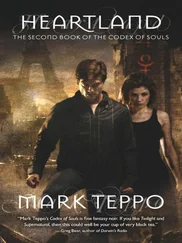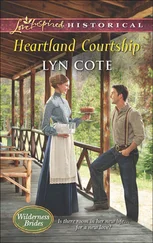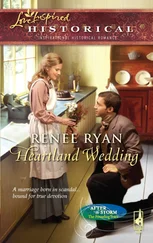Maybe I should not have been so didactic, playing César Franck’s entire Symphony for her. But hadn’t she placed her left hand on her knee, inadvertently pulling up the shirt cuff, so that the naked face of her wrist was visible? This was one of the small gestures of pleasure that I had noticed in her while we listened to music. Another was tilting her face slightly toward her left shoulder, so that her eyes seemed to follow the light coming through the window. Or touching the front of her left wrist with her right index finger, as if she wanted to take her pulse discreetly, without me noticing. Through intuition, which is reason operating on a back channel, I had compiled a catalogue of McCabe’s signs of pleasure. Now I was not so sure. They may have been signs of boredom. Had I attributed to her my own pleasure at having such a docile audience? When we listened to music, I felt in my natural state: neutral, equidistant from all feelings and humors. Only with McCabe gone did I realize that my perfect equilibrium could not have been attained without the pleasure directly flowing from her presence. It was I, not her, who had to be put under the microscope. There had never been any carnal desire on my part toward McCabe. Acknowledging pleasure from her verged on indecency, but this was no time for cowardice. She had given me pleasure daily. Incorporeal pleasure. How could that be? Was it just her docility, her willingness to dine with me night after night, listen to my talk about plants, and sit through the lengthy music? I suspected an ulterior reason, but my aching brain refused to dig deeper.
Her docility had a darker side effect, though: it made me miss the signs of her impending departure. Mrs. Crandall’s visit was the only red flag, or at the very least, a symptom of McCabe’s restlessness. Had Mrs. Crandall helped McCabe escape? I couldn’t see her doing much beyond driving McCabe to the airport or calling her a cab or performing some other factotum task. Mrs. Crandall was not the eloping kind. However voluptuous, she was a pillar of society.
At dinner, and when she changed my bandages in the morning, I should have prodded McCabe even more about herself. But it was hard work. Since her answers never expanded into conversation, I was forced to ask one question after another, just to hear her speak. Now that she had disappeared, I craved her voice, and hers alone. Even when they were monosyllabic, her answers were so complete and perfect when measured against my questions that they left me wanting more. The longest I had ever heard her speak was when she told me the story about the Biloxi marshes and the burning corpses.
It was easier to question McCabe in the morning, while she changed my bandages. (When I now thought of McCabe it was the new one I envisioned; the old, voluble, loquacious McCabe had begun receding at that moment on the edge of the Judge’s land when I almost pushed the usurper down the ravine.) We were physically close. In the bright light, I could see even the tiniest change of expression in her eyes. My questions the first day were about myself, asking if my feet had been amputated. She said “no” several times until I stopped, still unsure if she was telling the truth. The next morning she changed my bandages for the first time. Each layer she unwrapped from my right foot was more purulent than the preceding. She paused before unwrapping the one closest to the skin. “Your foot is in there. See the shape?” I nodded and glanced away. When she was sure I was not looking, she uncovered the foot. No nurse in the history of nursing had been more devoted than McCabe. Yet she had abandoned her patient.
One day, long after that, she invited me to look at my feet. The intimacy of the offer shook me. She was offering me a part of my body as if she owned it, which she did at that moment. I could see her reflected on the windowpane, waiting for my answer, the careless parting of her lips contradicting the competent hands holding a roll of gauze and a pair of scissors. I was afraid of her. Just for a second. Then I glanced at my foot. It was monstrous. I managed not to heave until McCabe left the room. After that, I was insatiably curious about her.
Questions had to be clear and direct, and seem innocent. They could not be nakedly personal, but nor could they be sneaky. McCabe would clam up in either case. The personal could be reached safely only by starting from the general. A comment wondering whether the Judge’s yellow roses risked black spot if it rained too much this fall would slowly lead to a casual question about fall weather in her hometown, which turned out to be Bangor, Maine. That was a logic-defying upset. I was sure Bebe had told me that McCabe was from Concord, where she had been raised in an orphanage. Someone was lying. As I learned more about McCabe’s childhood in Bangor, a tiny fact a day, I added this fib to Bebe’s catalogue, which was almost as long as mine.
McCabe did not like to fish. In Bangor, this was the only leisure activity available to her other than church. So she worked, from the age of eight, to make money and kill time. She liked to have her own money. Her aunt was neither rich, nor poor, nor too stingy or young. She had died in a retirement home a few years earlier. McCabe was her only survivor (from which I inferred no parents, siblings, etc.). Fibulous Bebe had told me that McCabe did not remember her parents and (maybe—at the time I hated McCabe’s guts so much that her life story made me want to puke) that her mother may have been unmarried, or that her father had walked out on her and the baby. I now wished I had paid more attention to Bebe’s gushing reports. On the other hand, she may have been feeding me misinformation just for the hell of it. Bebe could have had a career as a double or triple agent.
It is also possible that McCabe had deceived her. After all, what did anyone know about McCabe before she took SoHo by storm in the winter of 2002? What did anyone know about anyone in New York, the Mecca of self-reinvention, the born-again capital of the universe? Haven’t you noticed, dear listener, how the eyes of New Yorkers glaze over when one of them imprudently mentions their original place of birth? How the room tone acquires a frigid buzz if the remembrances go beyond the geographical fact? How, if they persist, standers-by will drift away, afraid that they, too, may have to expose their loathed original selves?
As the second night without McCabe fell, I reviewed those facts, one by one. They ranged from her childhood diseases (whooping cough) and pets (a frog, a snail) to why she became an art merchant (“Just looking to scrub my money,” then finding out that “I dug selling trash”). I had memorized them. I counted them now (arithmetic had not deserted me). There were 676. In her voice, each of them had seemed uniquely hers, filled with meaning and possibilities. Now they were brittle shards of generic trivia that could be used to assemble anyone’s portrait. Her voice is what I missed most on that second night. A voice so ordinary that I can describe it only as what it was not: not loud, raspy, shrill, breathy, nasal, guttural, sweet, booming, soft, deep-throated, or high-pitched. Nothing special distinguished it. That is what was moving and, in retrospect, magnificent about her voice: it was an apotheosis of the generic. The transubstantiation of everything and everybody. The Holy Wafer of Sound. I craved a fix. A craving so brutal that my stomach cramped, my skin crawled and itched the more frantically I scratched, leaving bloody ruts. When my chest began to hurt, I settled for some aural methadone. I managed to crawl out of bed, gasping, and turn on the music player. I sobbed, dry-eyed, while the Antiochian soprano sang Reynaldo Hahn’s remorseful “Dis! qu’as tu fait, toi que voilà, de ta jeunesse.” Openly, shamelessly sobbed. Softly, though, so I could listen to her. It was not McCabe’s voice, but a palliative. My chest was about to explode when she began to sing. Before she finished, I was asleep on the rug in a pool of tears.
Читать дальше












